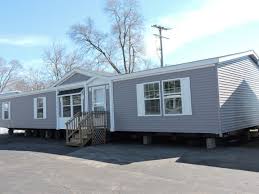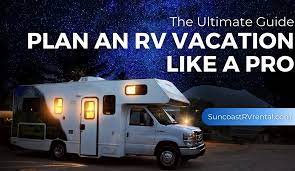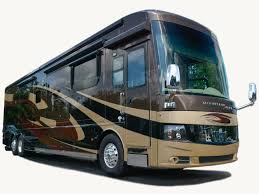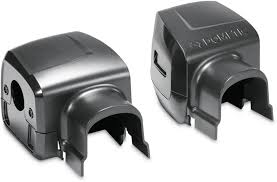The Charm of Trailer Houses
Trailer houses, also known as mobile homes or manufactured homes, have been a staple of American housing for decades. These uniquely designed dwellings offer a flexible and affordable housing option for individuals and families looking for a place to call their own.
History and Evolution
The concept of trailer houses dates back to the early 20th century when they were initially developed as temporary housing solutions. Over time, these structures evolved into more permanent residences with improved designs and amenities.
Features and Benefits
Trailer houses come in various sizes and layouts, offering options for different lifestyles and preferences. They are often more cost-effective than traditional homes, making homeownership more accessible to a wider range of people. Additionally, their mobility allows residents to relocate without the need to sell or leave behind their home.
Modern Trends
In recent years, trailer houses have seen a resurgence in popularity due to their affordability, sustainability, and customizable features. Many modern trailer houses are equipped with energy-efficient appliances, smart home technology, and stylish interiors that rival traditional homes.
The Future of Trailer Houses
As the demand for affordable housing continues to rise, trailer houses are expected to play an increasingly important role in meeting the housing needs of individuals and families across the country. With advancements in design and construction techniques, the future looks bright for these versatile dwellings.
Six Advantages of Trailer Homes: Affordable, Flexible, and Sustainable Living Solutions
- Affordable housing option
- Flexibility to relocate easily
- Customizable layouts and features
- Energy-efficient designs available
- Sustainable living with smaller ecological footprint
- Accessible homeownership for a wider range of people
Four Major Downsides of Trailer House Living: Resale, Space, Stigma, and Zoning
Affordable housing option
Trailer houses offer an attractive advantage as an affordable housing option, making homeownership more attainable for individuals and families on a budget. With lower upfront costs compared to traditional homes, trailer houses provide a cost-effective solution without compromising on comfort or quality. This affordability factor allows more people to secure a place to call their own and enjoy the benefits of homeownership without breaking the bank.
Flexibility to relocate easily
The flexibility to relocate easily is a significant advantage of trailer houses. Unlike traditional homes, trailer houses can be transported to a new location with relative ease, allowing homeowners to change their surroundings without the need to sell their property. This mobility provides individuals and families with the freedom to explore new opportunities, travel to different regions, or simply enjoy a change of scenery without the constraints of a fixed foundation. The ability to relocate easily is a key feature that makes trailer houses an appealing option for those seeking a dynamic and adaptable living situation.
Customizable layouts and features
Trailer houses offer the advantage of customizable layouts and features, allowing homeowners to personalize their living space according to their preferences and needs. Whether it’s adding extra storage, upgrading appliances, or creating a cozy reading nook, the flexibility of trailer house design enables individuals to tailor their home to reflect their unique style and lifestyle. This customization aspect not only enhances comfort and functionality but also gives residents a sense of ownership and pride in creating a space that truly feels like home.
Energy-efficient designs available
Energy-efficient designs available in trailer houses offer a significant advantage by helping residents reduce their environmental impact and lower utility costs. These designs incorporate features such as efficient insulation, energy-saving appliances, and sustainable building materials to enhance the overall sustainability of the home. By choosing an energy-efficient trailer house, homeowners can enjoy a comfortable living space while also contributing to a greener future for our planet.
Sustainable living with smaller ecological footprint
Trailer houses promote sustainable living by offering a housing option that leaves a smaller ecological footprint compared to traditional homes. Their compact size and efficient design require fewer resources for construction and maintenance, reducing energy consumption and waste production. By embracing trailer house living, individuals can contribute to environmental conservation efforts while enjoying a comfortable and eco-friendly lifestyle.
Accessible homeownership for a wider range of people
Trailer houses offer accessible homeownership for a wider range of people, making the dream of owning a home a reality for many individuals and families. With their more affordable price point compared to traditional houses, trailer homes provide an opportunity for those on a limited budget to invest in their own property. This accessibility not only fosters a sense of stability and pride in homeownership but also opens up possibilities for individuals who may have previously thought owning a home was out of reach.
Limited Resale Value
One significant drawback of trailer houses is their limited resale value. Unlike traditional homes that often appreciate in value over time, trailer houses tend to depreciate, making them less lucrative investments. This depreciation can result in financial losses for homeowners looking to sell their trailer houses, as the resale value may not match the initial purchase price. The decreased profitability of selling a trailer house compared to a traditional home is an important consideration for those weighing their housing options.
Space Limitations
Trailer houses, while offering flexibility and affordability, can present a con in the form of space limitations. Due to their compact size, these dwellings may have restricted living space and storage capacity, posing a challenge for larger families. The confined layout can make it difficult to accommodate the needs of multiple occupants, potentially leading to a sense of overcrowding and limited personal space within the trailer house.
Perception and Stigma
Perception and Stigma: Despite the evolution and modernization of trailer houses, some individuals still hold onto outdated stereotypes associating them with lower socioeconomic status or inferior quality. This lingering perception can result in social stigma for those who choose to live in trailer houses, impacting their sense of belonging and self-worth. Breaking free from these misconceptions is essential to recognizing the value and benefits that trailer houses offer as affordable and flexible housing options for diverse communities.
Zoning Restrictions
Zoning restrictions pose a significant con for trailer house owners, as local regulations can limit the placement of these homes, restricting their options for location. These restrictions may prevent individuals from situating their trailer houses in desired areas, such as certain neighborhoods or regions with specific zoning laws. As a result, homeowners may face challenges in finding suitable and convenient locations for their trailer houses, potentially impacting their overall living experience and lifestyle choices.




